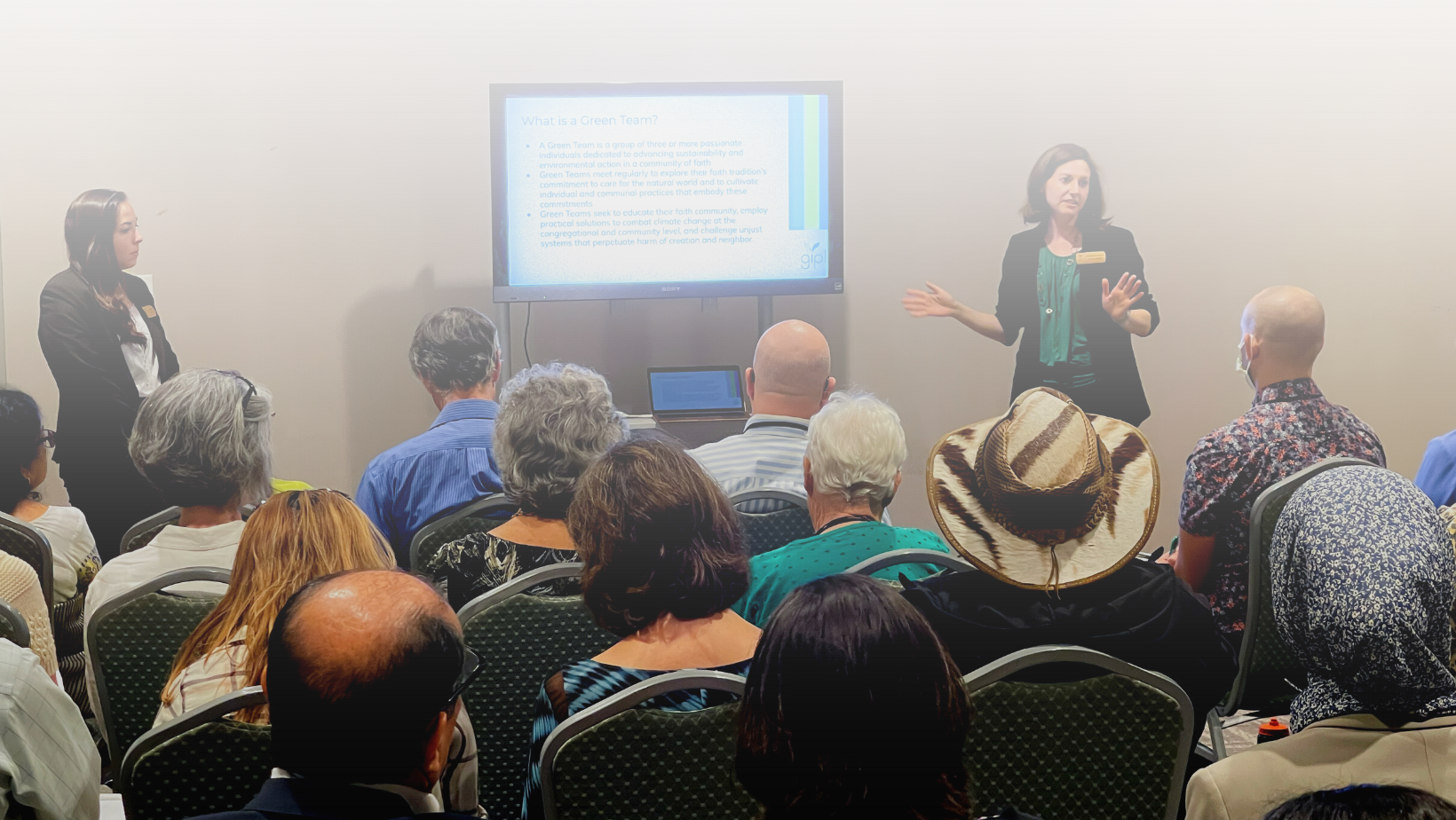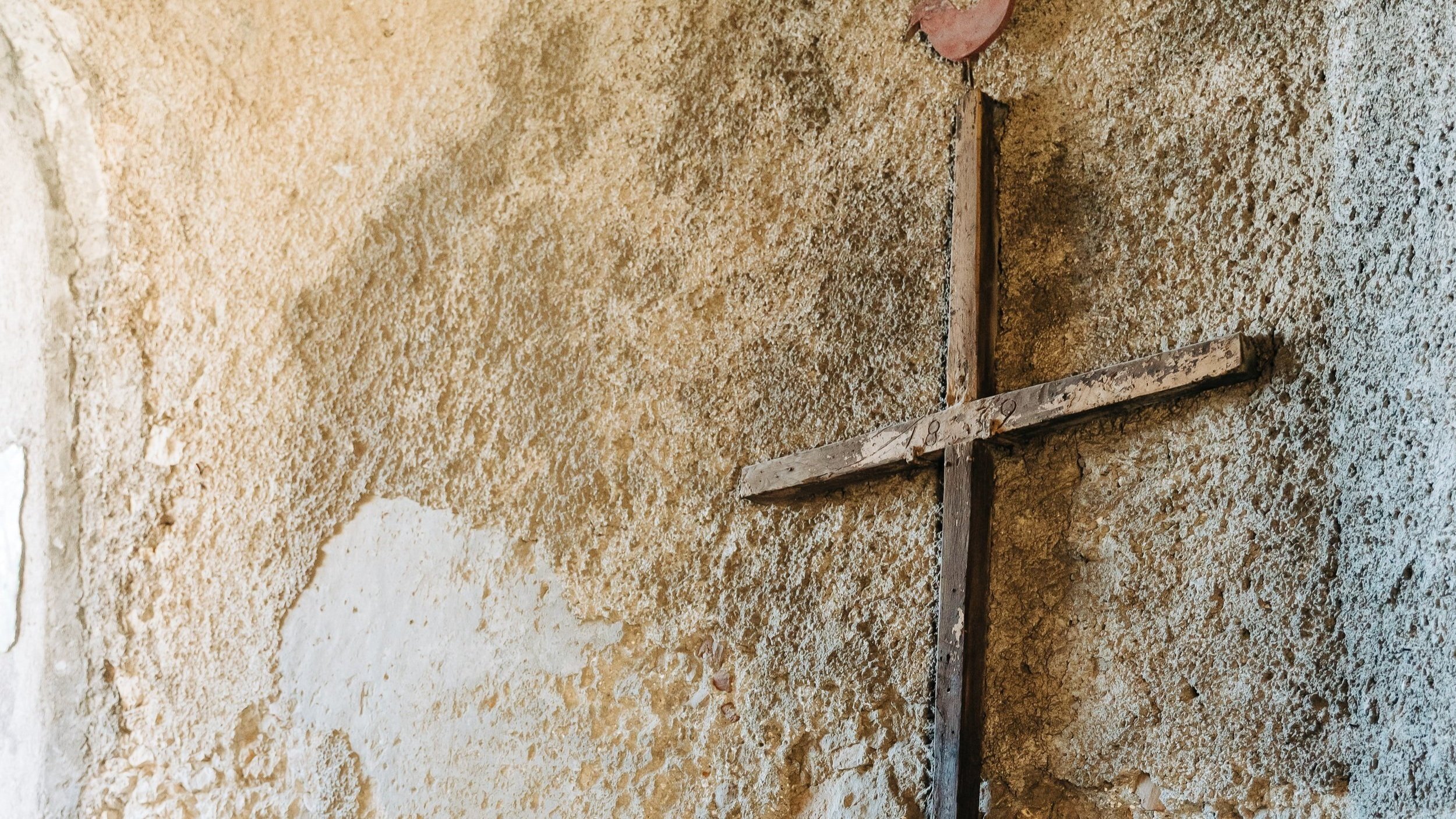
Classes & Workshops
Take advantage of GIPL’s educational offerings, created by seasoned experts and theologians seeking to enhance your knowledge and practice of environmental stewardship.
Introductory Classes
-
Advocacy 101
Taught by GIPL Staff, this class provides an overview of GIPL’s primary policy priorities, including coal ash, offshore drilling, and Plant Vogtle. The goal of this workshop is to educate your congregation on the issues and provide practical ways for you to engage in advocacy around these issues. This workshop can also be coupled with a letter-writing campaign or training for legislative meetings.
-
Green Team 101
Taught by GIPL Staff, in this workshop participants will learn strategies for building their green team, organizing and mobilizing members, and engaging their congregation. Participants will also receive access to Green Team resources, learn about GIPL’s practical climate solution programs, and consult 1:1 will GIPL Green Team coaches. This workshop is designed for new green teams or green teams who are relaunching.
-
Active Hope
Based on the work of Joanna Macy, this participatory workshop addresses the environmental and cultural problems that the world is facing. Participants engage in exercises to help support one another as they go forth and work towards a more sustainable, just, and peaceful world where all can thrive.
-
Intro to Environmental Justice
Taught by GIPL staff, this class provides an overview of the history of the environmental justice movement and the role that faith communities have played in advocating for justice. During this workshop, participants will also learn about some of the current environmental justice issues facing Georgians today and will discuss strategies for taking action at the local, state, and federal levels.
-
Jesus, St. Francis, and Earth Care
Taught from the Christian tradition, this class will be a conversation about who we love, how we love, and how that might help us to care for the Earth. Groups will explore what St. Francis has to say about who we love and what Jesus has to say about how we love. Then, we will explore our place in all of this and consider how this might call us to take environmental action. This class is taught by GIPL's co-founder, Carol Bartlett.
-
Christian Creation Care 101
Drawing from the Christian faith tradition, this class highlights the theological importance of environmental stewardship and the role of faith communities in addressing the climate crisis. Drawing on scripture from the Old and New Testaments, this class explores the core Christian values of rest, justice, and mission which offer a foundation for creating a more sustainable world.
-
Islamic Earth Stewardship
Drawing on the principles of Islam, this class highlights the theological importance of environmental stewardship and the role of Masjids and Ummah in addressing the climate crisis. This includes a discussion of Khalifah (Stewardship), Mizan (Balance), and Adl (Justice). The discussion will end with actionable steps for participants to begin tackling environmental justice issues at the local, state, and federal levels.
-
Jewish Creation Care 101
Drawing from the Jewish faith tradition, this class highlights the theological importance of environmental stewardship and the role of faith communities in addressing the climate crisis. The class explores the core values and expressions of Judaism which celebrates the connection of all living things and calls for an environmentally conscious mindset. This includes Bal Taschit (Do not destroy or Waste), Tikkum Olam (Repair the World), and the holiday of Tu B'Shvat!
All of these classes satisfy the Four Direction Fund grant requirements.

Practical Workshops
-
Climate and Health
Taught by Dr. Neha Pathak, a GIPL Board Member, the focus of this workshop will be on how climate change impacts health, with a focus on climate and health risks in Georgia. We will discuss how to mitigate the risks from heat-related illness, poor air quality, and a lengthening allergy season.
-
Drawdown Georgia for Congregations: Time to Take the Next Step
Taught by GIPL staff, this workshop reviews the 20 high impact Drawdown Georgia solutions for cutting Georgia’s carbon impact by one-third by 2030 and will focus on the steps that congregations can take to engage with specific solutions. Congregations learn about practical actions for reducing their carbon impact and the ways they can advocate for policies related to these solutions.
-
Eating the World: Religion, Consumption and Ethics
Taught by Rabbi Jonathan K. Crane, professor of religion and bioethics at Emory University. This class encounters sources from Judaism, Christianity, and Islam that speak about eating. Not only do these traditions agree about how to eat well, we will see that contemporary science endorses this ancient eating strategy.
-
NEW: Coping with Eco-Distress
Taught by Rosaleen Xiong, GIPL’s Program Fellow, in this workshop participants engage in conversation around ecological distress, which refers to several emotions, such as eco-grief, eco-anxiety, and eco-guilt, that arise due to experiencing or learning about environmental degradation, the loss of ecosystems and species, and/or climate change. During this workshop, the group will explore the connection between environmental loss and spiritual distress. We’ll discuss ways that our faith communities may help us channel and cope with this grief.
-
Energy Equity: Advancing Clean Energy in Georgia
Taught by GIPL staff, this workshop addresses the environmental and public health impacts associated with our current energy generating sources and the factors contributing to energy burden in GA. The workshop will also explore clean energy options such as energy efficiency and solar and ways your faith community can engage in advocacy around these issues and advance clean energy as individuals and a congregation.
-
Faithful Responses to Reducing Waste
Taught by GIPL staff, the goal of this class is to help your faith community understand the environmental and justice concerns related to the use of single-use plastics and the challenges associated with recycling in Georgia. This workshop will explore opportunities to address plastics at a policy level and solutions to help your congregation reduce and divert waste onsite.
-
Funding and Resources for Congregations
Practical climate solutions, such as solar, EV charging stations, and energy efficiency retrofits, often come with a high price tag and the expense can be a barrier for many congregations. During this workshop, participants will learn about various resources and funding opportunities available for faith communities such as GIPL grant opportunities, utility rebates, and federal funding opportunities through the Inflation Reduction Act. This class is taught by GIPL staff.
-
The House of Prayer for All People: Scientific Perspectives and God’s Creation
With degrees in both biochemistry and theology, Dr. Dabney Dixon, professor of chemistry at Georgia State University and a GIPL Board Member, offers practical education about the science behind our current environmental problems as well as faithful solutions that can be embraced by all.
-
Investing with Sustainable Faith Values
Taught by Peter Krull, a sustainable financial planner, this class explores the issue of divestment from financial portfolios that include fossil fuel stocks, leading congregations and individuals towards the work of investing in positive funds that are a stronger reflection of their sustainable faith values.
-
Taking Environmental Action Home
Taught by GIPL staff, this class provides an overview of opportunities for individuals and families to engage in environmental action at home. Participants will learn about home energy and solar assessments, waste reduction and diversion strategies, and funding opportunities for residents.
-
Youth Activism
Taught by GIPL staff, this workshop, designed specifically for youth, provides an introduction to the topics of creation care and climate change while exploring ways that young leaders can raise their voices for change. Youth view environmental stewardship and justice through the lens of their faith tradition and gain practical skills in addressing pressing climate issues. This class highlights ways for youth may get involved at a congregational, community, and policy level.
-
Climate and Our Emotional Wellbeing
How do we navigate the range of emotions that arise in us as we engage with a changing climate and shifting world? Join Janna Diamond, Georgia State Coordinator for the Climate Psychology Alliance and somatic therapist, in a workshop that not only addresses the impacts of climate anxiety and eco-grief in our day-to-day but also offers us support and tools to live a more fulfilling, connected, and empowered life during challenging times.

Tradition Specific Classes
-
Convictions for an Apocalyptic Ecology
Taught by Dr. Stanley P. Saunders, professor emeritus of New Testament at Columbia Theological Seminary. Dr. Saunders considers the evidence of a new creation found in John’s Revelation as well as Colossians and the Pauline letters. He highlights Christ’s redemptive power for all of creation and not just human inhabitants.
-
Christian Responses to Climate-Shaped Conflict
A three-week series taught by Dr. Mark Douglas, professor of Christian Ethics at Columbia Theological Seminary. This class seeks to raise awareness of how certain global conflicts are directly tied to natural resources, climate change and environmental degradation. Participants engage in ways that our faith can shape an ethical response to these conflicts and provide healing to a hurting world ravaged by environmental chaos.
-
Earth’s Story in the Old Testament
Taught by Dr. William P. Brown, professor of Old Testament at Columbia Theological Seminary. This class takes a closer look at the Creation story as found in Genesis 1 & 2 as well as Creation stories found in five additional books of the Hebrew Bible. . Class participants also will learn “The Genesis Code.”
-
The Shmita Cycle and the Jewish Call for Environmental Stewardship
This workshop explores the challenges of honoring the Sabbatical (Leviticus 25) and Jubilee years, the opportunities we might create by embedding some ancient practices into our religious life, and our responsibilities to the earth and all its inhabitants. This course is taught by Myrtle Lewin, active congregant of Ahavath Achim Synagogue and Joanna Kobylivker, Community Organizer at GIPL.
-
NEW: Reimagining Stewardship
The language of “stewardship” is one way the church has long talked about Creation care. Like all language, though, it has its problems and its limits, some of which have contributed to our current environmental crises. As we enter further into an environmental age, Dr. Mark Douglas leads people in a discussion on whether or not this language is still helpful to use. How might we reframe the idea of stewardship to overcome its limitations and shape it toward meaningful use?
SUGGESTED HONORARIA
-
Single Service Honoraria: $150-$200
*Please note: this amount applies to Metro Atlanta locations only. Locations outside of the metro area will be asked to submit an honorarium plus the cost of mileage ($0.655/mile).
-
Single Event Honoraria: $75-$100
*Please note: this amount applies to Metro Atlanta locations only. Locations outside of the metro area will be asked to submit an honorarium plus the cost of mileage ($0.655/mile).
-
Honoraria: $150-$175
*Please note: this amount applies to Metro Atlanta locations only. Locations outside of the metro area will be asked to submit an honorarium plus the cost of mileage ($0.655/mile).
